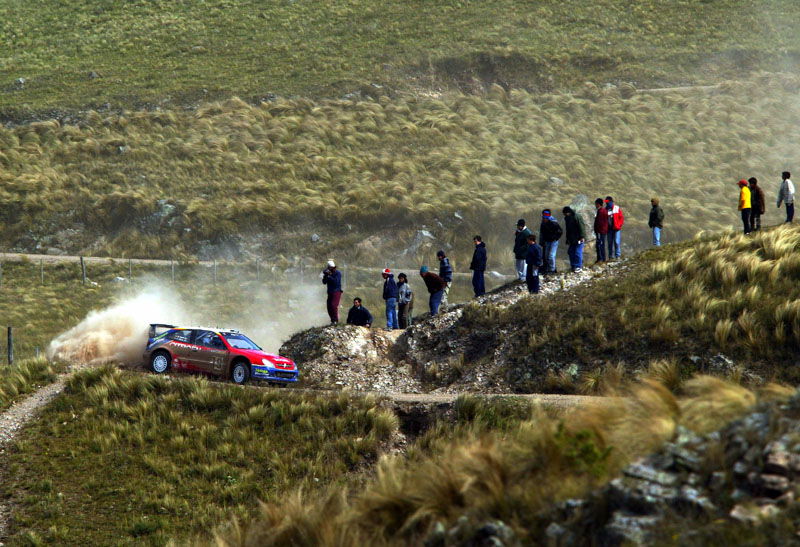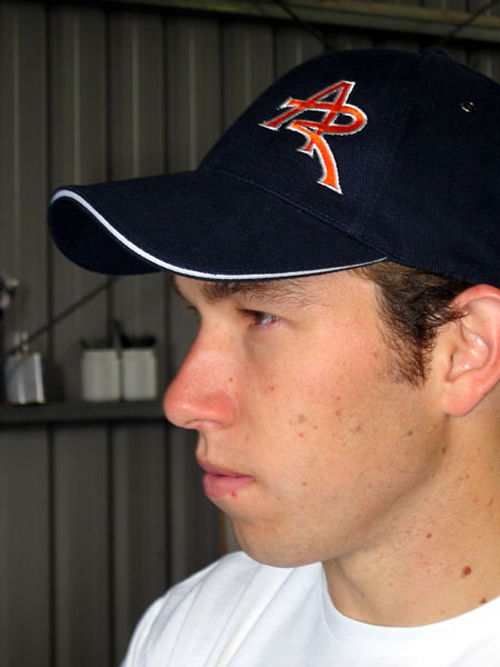Peugeot's 'medics'.
Throughout the WRC season, Peugeot Sport's 'medics' look after the health and physical well-being not only of the crews but also of the entire team...
Patrice Guillemautot: the man from Mondial Assistance:

Throughout the WRC season, Peugeot Sport's 'medics' look after the health and physical well-being not only of the crews but also of the entire team...
Patrice Guillemautot: the man from Mondial Assistance:
A rather rare incident occurred in the middle of a stage of the recent Rally of Turkey when the bottom of Marcus Gronholm and Timo Rautiainen's 307 WRC and the co-driver's seat were pierced by a metal rod encrusted in a rock lying in the middle of the road. Happily, Rautiainen escaped with a badly bruised backside. However, had the incident been more serious, Guillemautot would have been ready to intervene.
"I work with an association of doctors known as Mondial Assistance which is one of Peugeot Sport's partners," he noted. "When I'm not on a rally, I work on the emergency ward at Levallois Hospital, near Paris. This season, Ren? Cazenave, Marc Lestiennes and Emmanuel Rousseau and I take turns on events. We are fully equipped with all we need for this sort of work and we are all qualified to intervene in case a serious accident occurs, although we obviously hope we will never have to..."
Guillemautot takes with him all that is necessary to treat the different ailments that can affect not only the crews but also everyone in the team: "We are naturally extremely vigilant when it comes to the condition and use-by dates of the products we take to rallies and our stock is constantly updated. Should we be faced with a serious problem, we have the possibility of calling on pre-alerted outside assistance. The most delicate case we have been called upon to treat was an angina contracted by one of the mechanics in New Zealand. We made the initial diagnosis before calling on our medical assistance network to ensure he was given appropriate treatment. Wherever we go, we are able to call on local specialists. Mondial Assistance has put together a sort of Michelin Guide of the world's hospitals and that enables us to locate the best facilities wherever we go."
Ensuring the medical well-being of a rally team comes with its own specific constraints: "As far as the drivers and co-drivers are concerned, we have to pay very special attention to avoid using banned substances. In our stock list, all products are clearly identified to differentiate between those we can be use for the team and those which are only for the crews. That said, the latter tend to be in tip-top physical shape and very strong mentally, so they rarely call on our services. When they do, we tend to favour natural medicines that have no doping effect and which don't affect their vigilance. The advantage of us being present on events is that we can treat people on a day by day basis, which means we can prescribe exactly what our 'patients' need without overdosing. That's how we were able to keep Marcus going and competitive in Turkey despite the fact that he was suffering from a gastro-enteritis."
Alex Beraha: outside physical assistance:
A qualified osteopath, Beraha began working with Peugeot Sport during its days in the French Rally Championship. He stayed with the team when it moved into the World Championship and is known as the person who listens to the language of the body.
"Stress produces palpable tension in the zones I am called upon to work," he explained. "The physical and mental aspects are inevitably linked and that's why I also play the role of nanny, confident and jester. My complicity with the team is further strengthened by the fact that in addition to my work I share the same passion for motor sport. I wouldn't be capable of investing the same energy in a discipline in which I had little interest."
Just like the mechanics who look after the cars, Beraha alternates with equal efficiency between emergency jobs and more extensive, in-depth work: "On an event, the vast majority of the twenty minutes the drivers spend in service is given over to talking with their engineers. But I generally manage to get two or three minutes with them, between two mouthfuls of pasta. I profit from this time to give them some eye-drops or a quick relaxation massage.
"My complicity with the crews is primordial during such moments because you've only got a limited amount of time to locate any sensitive spots and treat them as thoroughly as possible. The main part of my work however, and indeed the part of my job I find the most rewarding, comes at the end of the day back at the hotel. While I work on their muscles, I chat with them about a whole host of topics. According to how he feels, Marcus, for example, will talk about his new tractor or go over the problems he has had during the day... It's a convivial, more congenial moment that I particularly enjoy. Naturally, nothing of anything the drivers or co-drivers confide in me goes any further than the four walls of the room. I know, though, that once I have finished with them, the combination of my massage work and my ability to listen will have a positive effect on them."
A variety of muscles can suffer in the course of a rally: "The size and morphology of the drivers obviously make a difference, as do their individual driving positions. The comfort of the co-drivers is sacrificed in the engineers' bid to achieve the ideal weight distribution for the car, so they are in fact the crew members who tend to suffer the most. My job is to identify the different constraints to which they are exposed and to adapt my treatment accordingly. The situation can clearly be complicated in certain unforeseen circumstances, such as a mechanical problem, for example, or an off. If they are in any sort of pain or discomfort, you have to try and assess the problem at the same time as the engineers are collecting information concerning the work that needs to be done to the car. You know, for example, that if the driver reports a power-steering failure, then you're going to have to work on his arms when he gets back to service. Happily, our Finnish crews are in excellent physical shape, although I have a bit of trouble with them on the diet front, trying to convince them to stop drinking so much coffee and cola all day long..."







